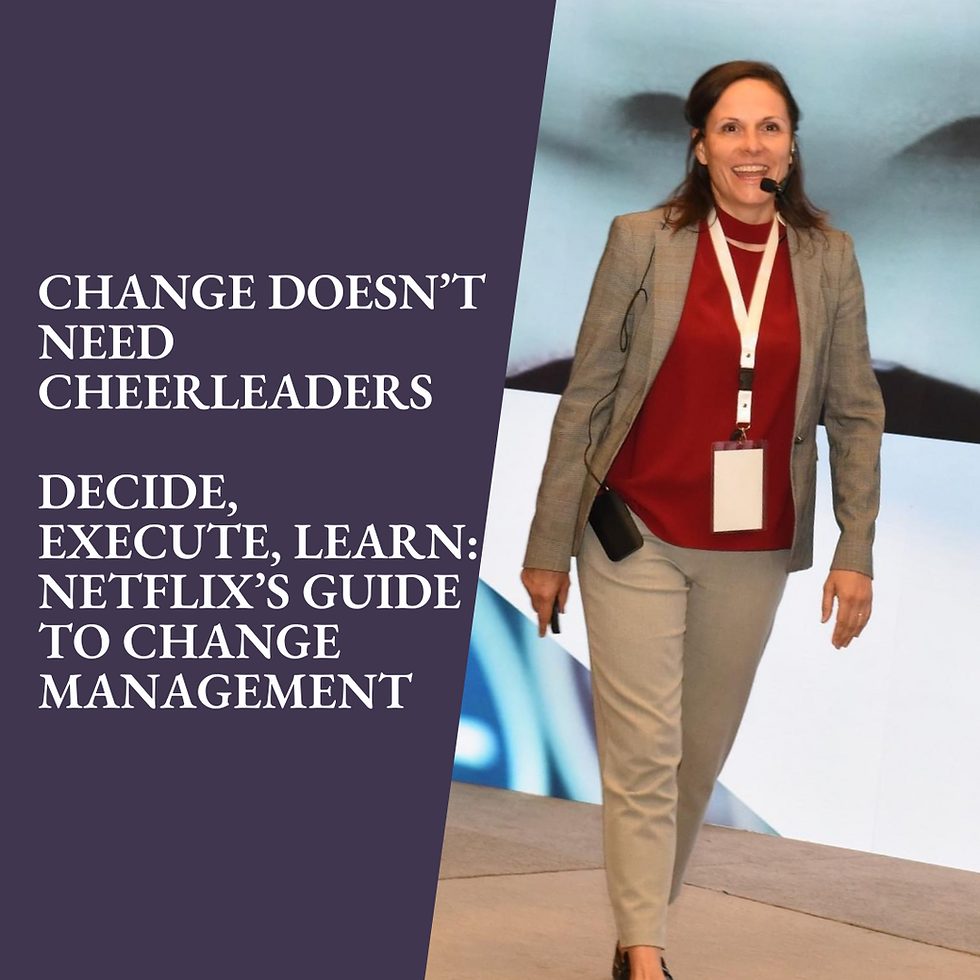My Bestie is the Worst Manager which Makes Her a Good Leader
- Szilvia Olah

- Jun 8, 2023
- 3 min read
I have a very close friend who gives me fantastic insights into the differences between Leaders & Managers. She has a company that employs 60 people.
Last year she went through a little bit of a struggle and as I was trying to make sense of her predicament through her CliftonStrengths (Deliberative - Activator - Futuristic - Command - Focus) the picture become clearer and clearer.
Her struggles were related to managing people, so after a while, I said that she needs to hand over the operation to somebody who is good at that and liked managing people. She did but was adamant that she likes managing people.
She said things like, I like to manage people:
Who know what to do
Who work alone autonomously
Who can think for themselves and solve problems
Who tell me how to motivate them
Who tell me what career they want and what they want to learn
Who manage their conflicts
Who I need to give a goal or a target and get it done with minimum supervision
Who get the message quickly as I don't like chit chatting
Who don't need to be controlled because I don't like controlling people
To which I said, so you like managing people who don't need managing?
The role of a manager is to control/manage a group of people to achieve a specific objective and it includes the nitty-gritty of being a human and everyday operational task, time & competence management.
Managing people is all about telling people directly or indirectly what to do, how to do it, and when to do it. Whether it is about managing relationships, workload, duty roster, or processes. The job is to get things done daily so the vision can be reached.
Leadership on the other hand is all about creating the destination/vision and showing the way. Leaders cannot be bogged down by the nitty-gritty of the daily life of employees like a conflict between two co-workers or figure out why a project is derailed. They will handle it but it frustrates them because it is not what they are about.
I often find that leaders are getting the same feedback from their staff and managers "The leadership don't care about my daily struggles."
To me, this is not a surprising comment and sometimes I say to myself, "Well, maybe they shouldn't. It is not their role." You have managers for this. Such confusion at organisations also signals that we have way too many people in leadership positions who are fulfilling managerial roles. We have an army of VPs but very few to execute so roles are mixed.
Whilst roles are overlapping and we go from one role to another on a daily basis it is easy to see whether we are more inclined to be managers or leaders depending on which part of the job we enjoy and which frustrates us.
I always ask supervisors and managers one question to see whether they should be in their role: Do you rather get things done or have others do it?
It turns out that when you don't want to take responsibility for other people's performance, you should not be a supervisor or a manager. But does it make them a leader?
You would say no! But why not?
Leaders, if you pay attention to what they say, they don't like to explain the reason behind their vision and spend their time motivating others. They communicate the vision and they need a competent team to execute it. They are very bullish about their direction and expect people to follow but not how you might think.
Following, for a true leader, doesn't mean that people don't ask questions.
Following, for a true leader, means that you understand the vision/direction and you manage yourself and your resources around achieving those. You train and develop yourself & others, you find solutions to problems, you think of alternatives, and allocate & manage resources that will enable the vision. This is what following a leader means. You align yourself and others with the task ahead all the way to completion.
And this is why you see managers and employees who are not taking up this role - for whatever reason - will soon be removed by the leader.
Because that is what leaders need whether we like it or not.
PS: Those leaders of yours who end up getting involved in daily operations when it is not required are your managers. Put them back into their managerial role.

.png)



Comments